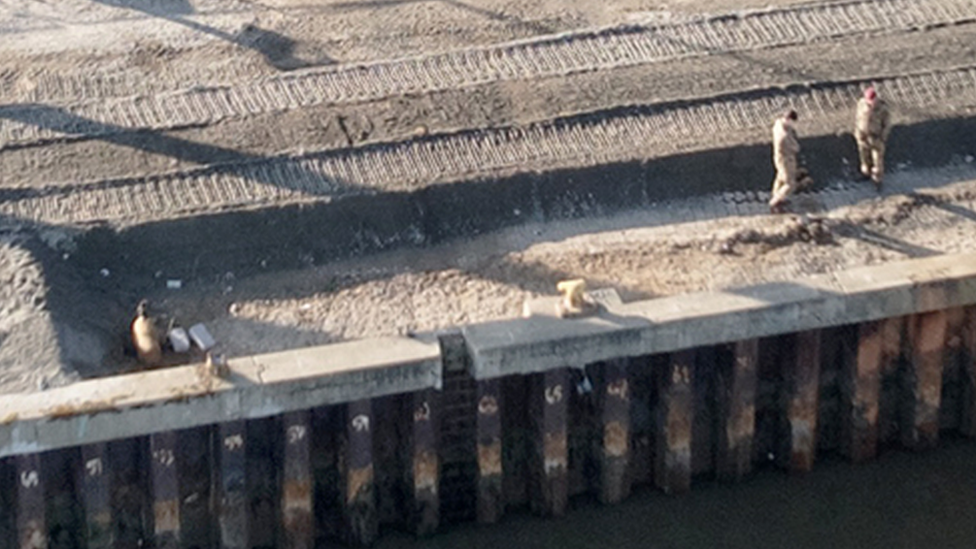Great Yarmouth: 'WW2 bomb scare put our lives in perspective'
- Published
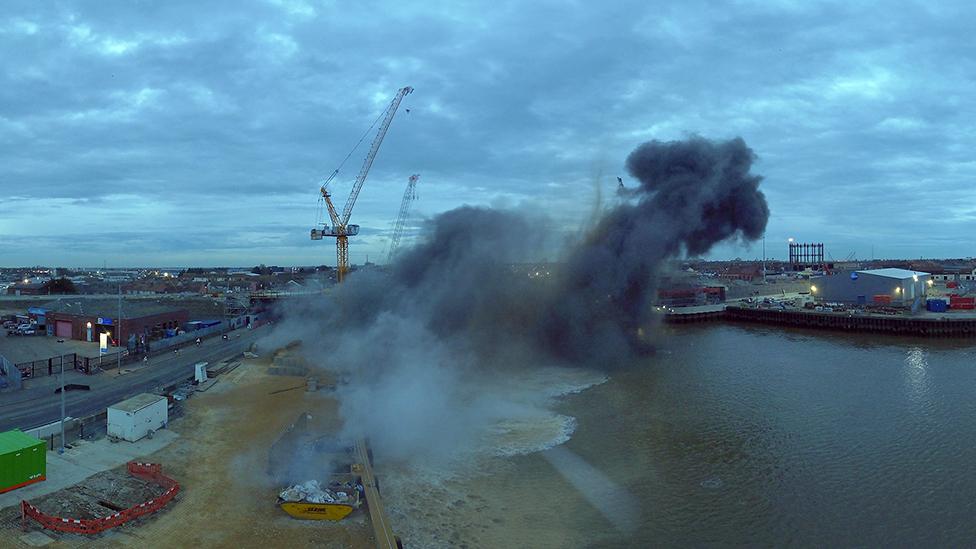
The detonation caused a large explosion, with debris seen blasting into the air
Residents were forced from their homes in Great Yarmouth last week after workers constructing a new river crossing uncovered an unexploded World War Two bomb. After a tense three days, the blast from its unexpected detonation shocked the town. A week on, the BBC spoke to those affected by the surprising discovery and its aftermath.
'We slept in our local church the first night'
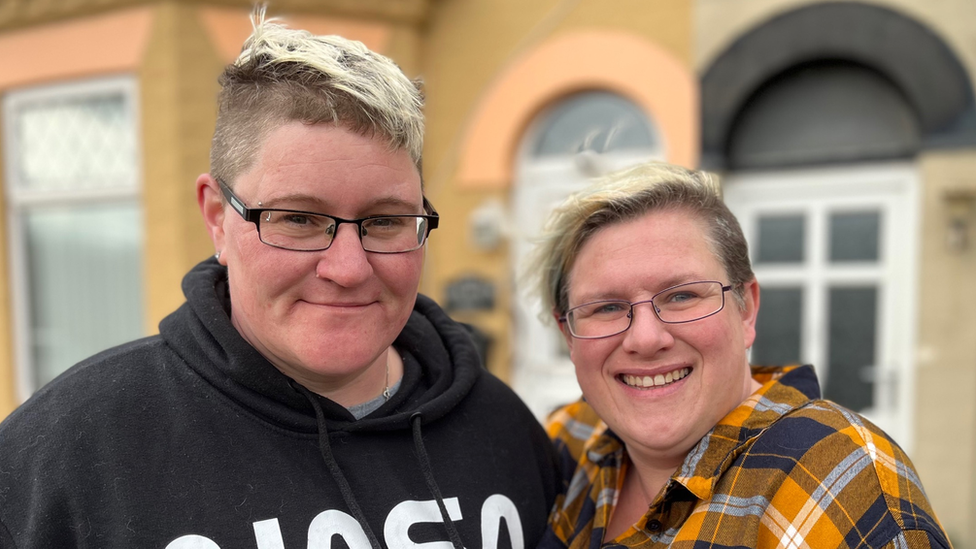
Jo and Charlotte Wilson had to find temporary accommodation for five people and four dogs
Jo and Charlotte Wilson were packing away a weekly food shop when they received a knock on the door from a police officer advising them to evacuate their home.
Their terraced house in Southtown Road, which they share with Charlotte's three children and four dogs, is just yards from where the bomb was found on Tuesday last week.
"It was a huge upheaval," said Jo, 38. "You can only load the car once.
"We had one kid off sick, two were at school, so in the car we had to get four dogs, us, and enough stuff for an evacuation."
They agreed they were "twitchy", with Charlotte adding: "Not knowing what was going to happen, not knowing how the children were going to get to and from school in Bradwell."
Jo added: "We were very lucky that their dad said they could go there, and we had a reverend very willing to take us and the four dogs.
"We slept in our local church on the first night."
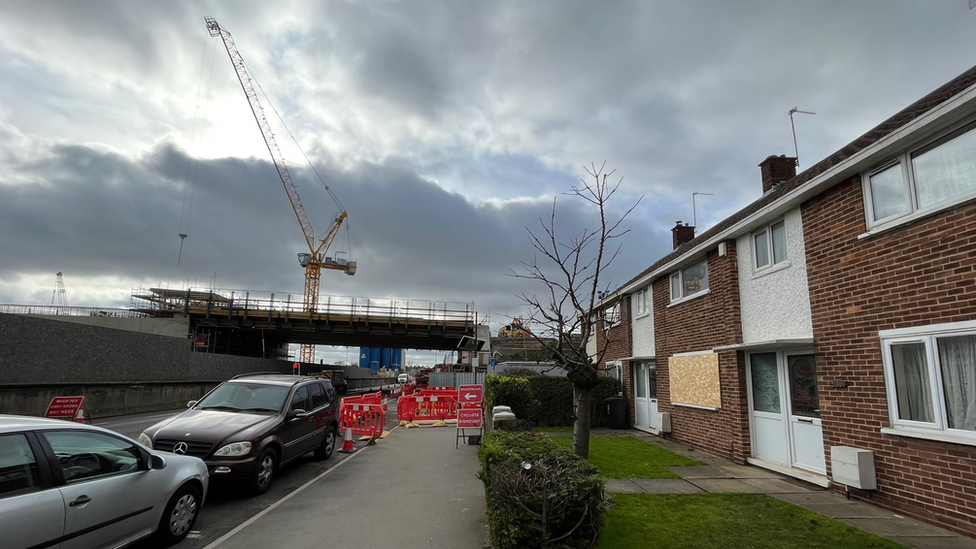
A neighbour of the Wilsons returned home to a damaged front window
They then stayed with a friend, returning to their undamaged home on Saturday morning after four nights away.
While both women suffer from anxiety, they are philosophical about the experience and said the police did a "really good job".
"It went from being really surreal, and I won't lie, it was a bit of an adventure, and it really put into perspective other things that are happening in the world, like in Turkey," added Charlotte.
"We are really blessed - we've got lots of friends and a supportive community, our church.
"It was only when we saw the aerial photos it made me realise how close we were.
"We are lucky, a couple of doors down, our neighbour's window was damaged."
'We were constantly told it would only be a few hours'
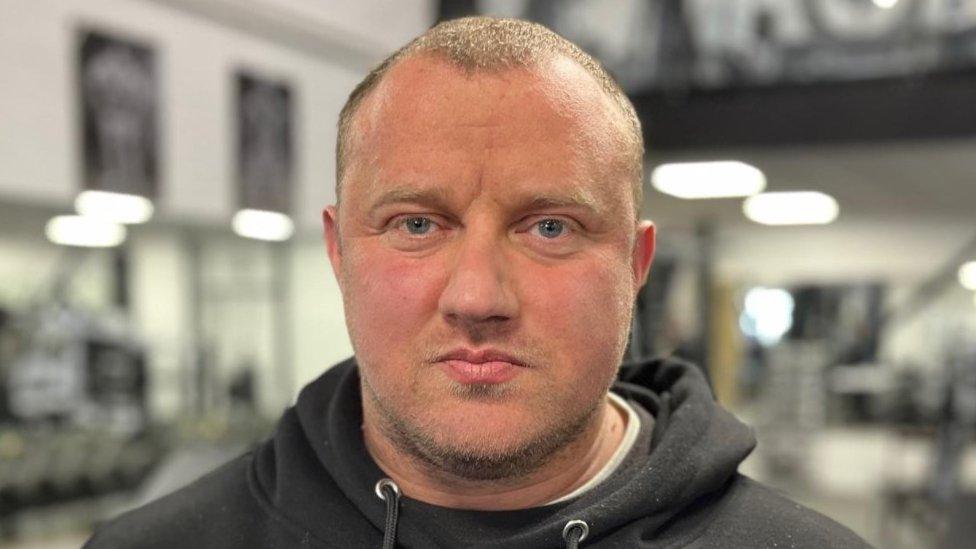
John Lock said he had complained to the council about its communications
John Lock, who runs Iron Warehouse Gym on Suffolk Road, said he felt the response to the bomb could have been handled better.
"We were forced to close for two days, and the day before that we were allowed to open but police were turning our customers away telling them we were closed," he said.
"It needed better communication - we were initially told we were in the 200m blast zone but we've now been told we weren't."
He said he had asked the county council for compensation but had been told he was not entitled to it because he was outside the exclusion zone.
"The communication was terrible - there was zero communication from the council," he added.
"We were constantly told it would only be a few hours.
"If we had known it would be another two days, we could have communicated that to our gym members, some of whom have gone to other gyms."
'Infrastructure can be replaced, life can't'

Graham Plant rejected criticism of the council's communications about the bomb and the exclusion zone
Graham Plant, deputy leader at Norfolk County Council, described the episode as "a very tense three days".
"We had to make sure people were safe, that was our priority as a council," he said.
"The two days prior to it going off were the days of considering what to do with the bomb - do we move it, do we set it off here - and the idea being that the least dangerous way was to try to deal with it on site."
The Army packed the area around the bomb with 400 tonnes of sand, which protected the surroundings from the subsequent blast.
They were working remotely to defuse it when it detonated unexpectedly on Friday evening last week.
"When it did go off there was absolutely the minimum damage that could have been done," said Mr Plant.
Damage was caused to some scaffolding connected to the construction of the new river crossing and the sea wall was "pushed out slightly" but is still secure and safe, he added.
Mr Plant disagreed with criticism of the council and any dispute over the 200m exclusion zone.
"Infrastructure can be replaced, life can't - our major concern was to keep people safe," he said.
"I'm content with the way it was communicated.
"I don't think there was anyone in town who didn't know there was a bomb on the quayside that had the potential to go off and take away life.
"Anyone who says we were being too cautious; I think the bomb going off answers that question."
'The risk is always there'
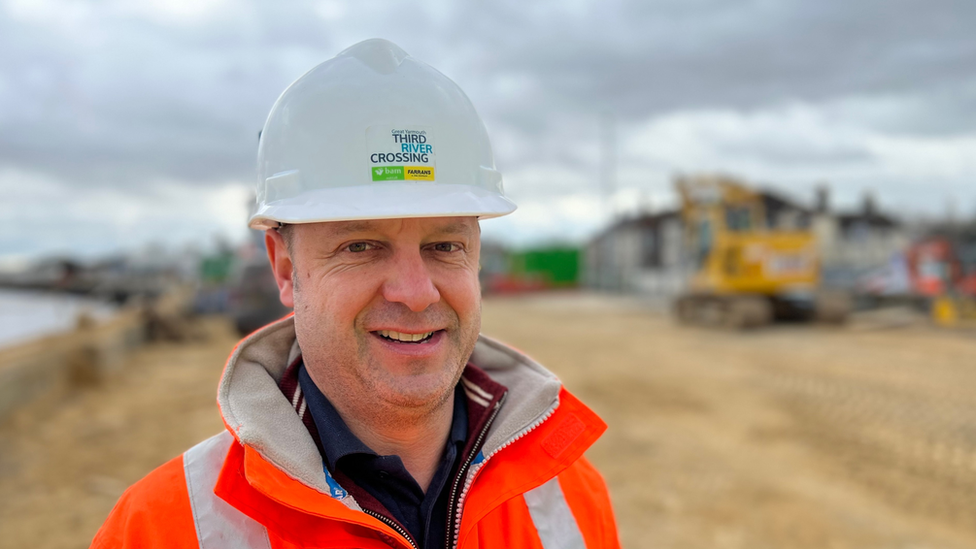
Richard Hayman said the main elements of the bridge work were still on track
BAM Farrans Joint Venture Project manager Richard Hayman, construction manager on the third river crossing, said the bomb was recovered by machinery working on the third river crossing.
"The machinery laid it on the quayside and we raised the alarm at that point," he added.
"We initially rang police and then the chain of events kicks in that leads to bomb disposal on site.
"I've done a lot of work up and down this river over the years and never found anything but the risk is always there because of the bombing in World War Two."
He said elements of the construction were affected by work being temporarily on hold last week but the main install was "on programme".
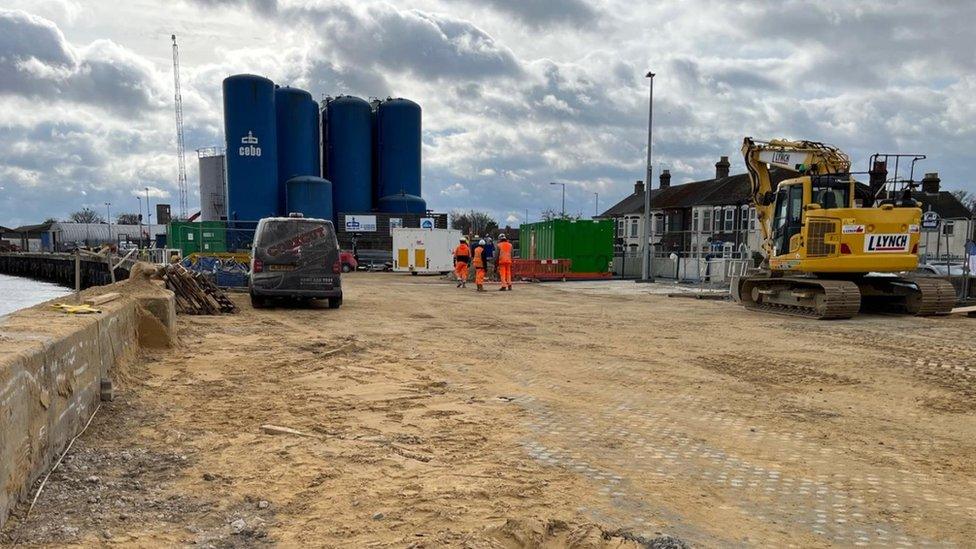
The site where the blast happened was not badly damaged

Find BBC News: East of England on Facebook, external, Instagram, external and Twitter, external. If you have a story suggestion email eastofenglandnews@bbc.co.uk, external
Related topics
- Published10 February 2023
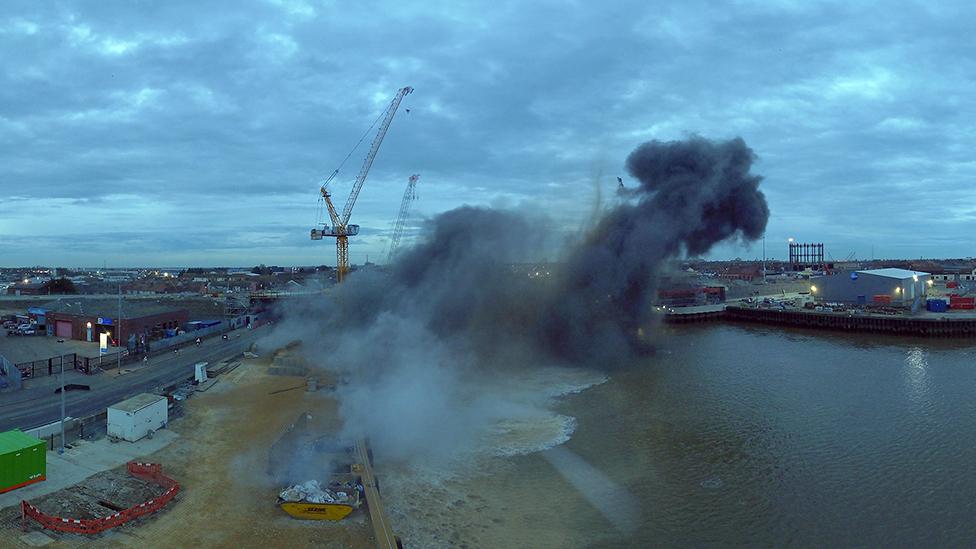
- Published10 February 2023
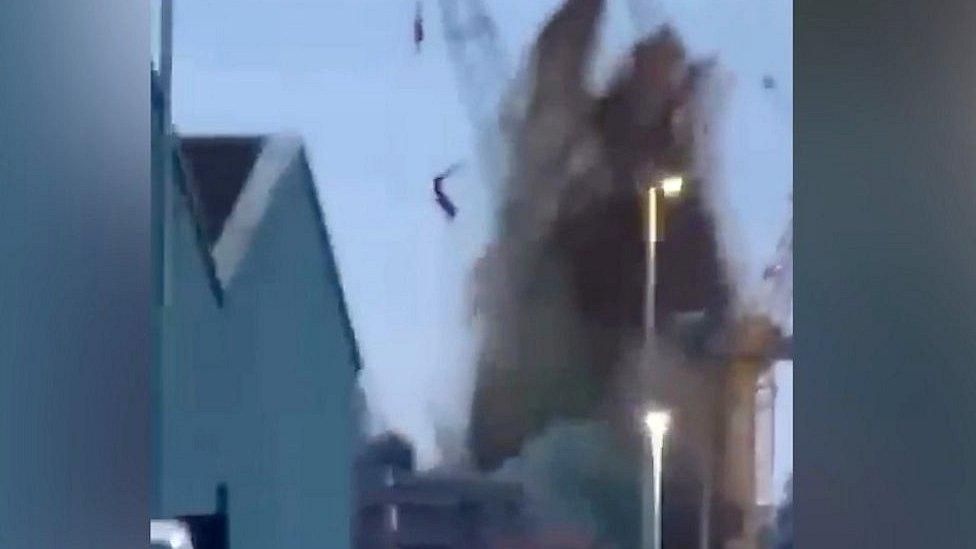
- Published10 February 2023
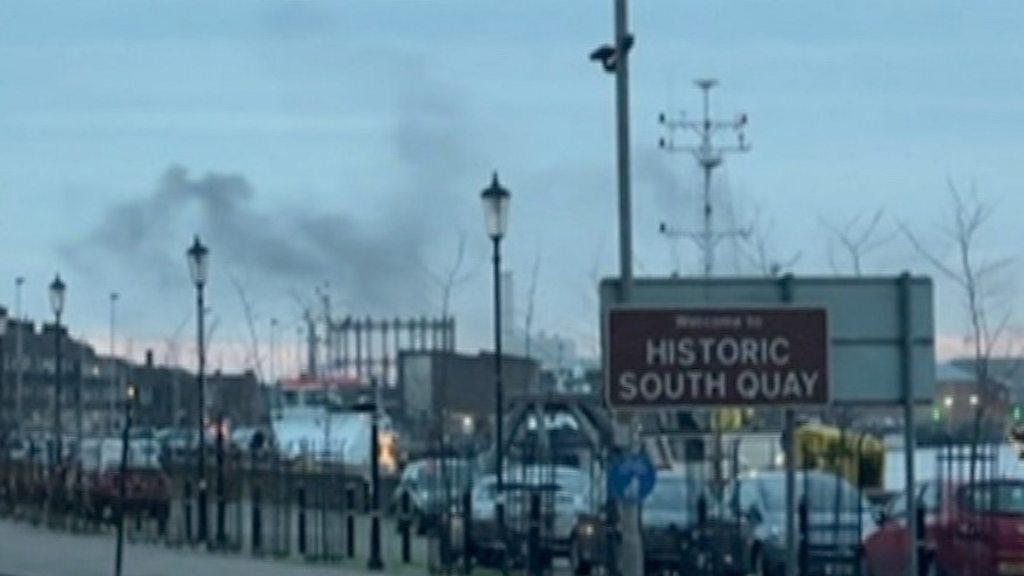
- Published10 February 2023
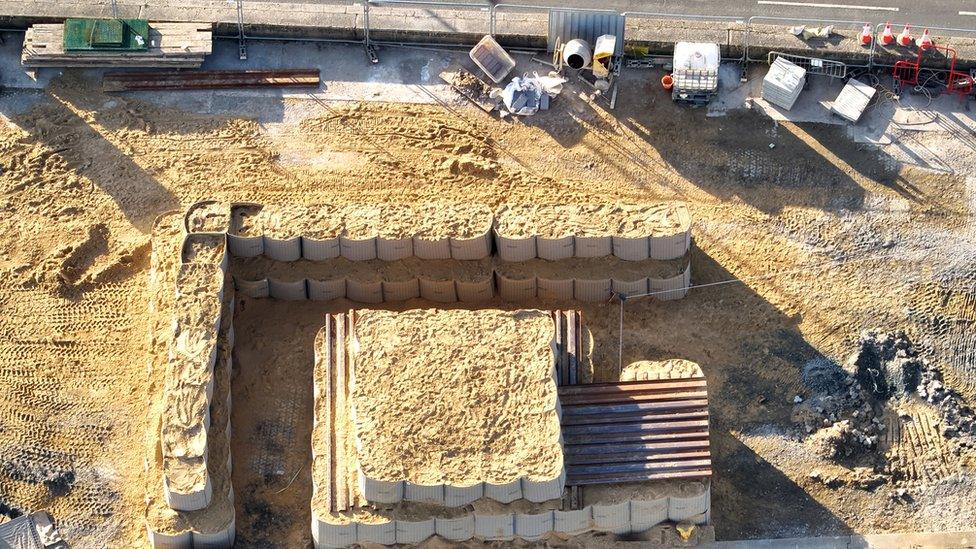
- Published9 February 2023

- Published8 February 2023
